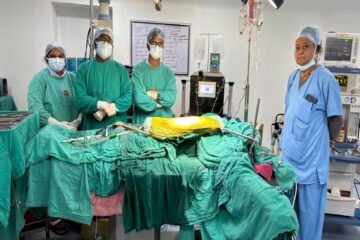Stomach cancer, also known as gastric cancer, is a serious condition that starts in the stomach lining and can spread to other parts of the digestive system. Despite advances in medical research and treatment, stomach cancer remains a significant health concern. This blog provides a comprehensive overview of stomach cancer, including its types, risk factors, symptoms, diagnosis, treatment options, and preventive measures.
What is Stomach Cancer?
Stomach cancer begins in the lining of the stomach, the organ responsible for digesting food. It can develop in any part of the stomach and may spread to other areas such as the esophagus, liver, and lymph nodes. The disease is often asymptomatic in its early stages, which can lead to a delay in diagnosis and treatment.
Types of Stomach Cancer
Several types of stomach cancer exist, each with distinct characteristics:
- Adenocarcinoma: The most common type, originating in the mucus-producing cells of the stomach lining.
- Lymphoma: Cancer that starts in the immune system cells located in the stomach.
- Gastrointestinal Stromal Tumors (GISTs): Rare tumors that begin in the connective tissue of the stomach.
- Carcinoid Tumors: These originate in the hormone-producing cells of the stomach.
Risk Factors
Certain factors can increase the likelihood of developing stomach cancer, including:
- Helicobacter pylori Infection: A bacterial infection that can lead to chronic inflammation and increase cancer risk.
- Family History: A family history of stomach cancer or genetic syndromes like Lynch syndrome can raise risk.
- Age: Risk increases with age, particularly in individuals over 65.
- Diet: High consumption of salty, smoked, or pickled foods can contribute to risk.
- Smoking: Tobacco use is a known risk factor for many cancers, including stomach cancer.
- Chronic Gastritis: Long-term inflammation of the stomach lining can increase risk.
- Certain Genetic Conditions: Conditions like hereditary diffuse gastric cancer (HDGC) can significantly elevate risk.
Symptoms
Stomach cancer symptoms can be subtle and may resemble other less serious conditions. Common symptoms include:
- Persistent Stomach Pain: Unexplained and persistent discomfort or pain in the stomach area.
- Nausea and Vomiting: Regular nausea or vomiting, especially if it becomes severe.
- Difficulty Swallowing: Feeling of food getting stuck or pain when swallowing.
- Unexplained Weight Loss: Losing weight without a clear reason.
- Loss of Appetite: Decreased interest in eating or feeling full quickly.
- Bloody or Dark Stool: Presence of blood in stool or stools that appear black and tarry.
- Fatigue: Unusual tiredness or weakness.
Diagnosis
Diagnosing stomach cancer often involves several steps:
- Endoscopy: A procedure where a flexible tube with a camera (endoscope) is inserted through the mouth to examine the stomach lining.
- Biopsy: A sample of stomach tissue is removed during an endoscopy and analyzed for cancer cells.
- Imaging Tests: Techniques like CT scans, PET scans, and X-rays help determine the extent of the cancer and whether it has spread.
- Blood Tests: Used to check overall health and detect markers that may indicate cancer.
Treatment Options
Treatment for stomach cancer depends on its stage, location, and overall health of the patient. Common treatments include:
- Surgery: Often the primary treatment, which may involve partial or total removal of the stomach (gastrectomy).
- Chemotherapy: Uses drugs to kill cancer cells or stop their growth, often used in combination with surgery.
- Radiation Therapy: Uses high-energy rays to target and destroy cancer cells, usually employed in conjunction with other treatments.
- Targeted Therapy: Involves drugs that specifically target cancer cells or the pathways that promote their growth.
- Immunotherapy: Helps the immune system recognize and attack cancer cells, though it’s not suitable for all patients.
Preventive Measures
While not all cases of stomach cancer can be prevented, certain steps can help reduce risk:
- Healthy Diet: Eating a diet rich in fruits, vegetables, and whole grains while limiting processed and salted foods.
- Regular Check-Ups: For those at higher risk, regular screenings and check-ups can aid in early detection.
- Quit Smoking: Avoiding tobacco use significantly lowers the risk of many cancers, including stomach cancer.
- Treat Helicobacter pylori Infection: Proper treatment of this bacterial infection can reduce the risk of stomach cancer.
Supporting Awareness and Research
Raising awareness and supporting research is vital in the fight against stomach cancer. Participate in awareness campaigns, support fundraising initiatives, and advocate for increased research funding to improve treatments and outcomes.
Conclusion
Stomach cancer is a challenging disease with complex symptoms and varied treatment options. Understanding the risk factors, symptoms, and available treatments can empower individuals to take proactive steps in their health management. Early detection and ongoing research are crucial in improving survival rates and advancing the fight against this disease.
If you have concerns about stomach cancer, consult with a healthcare professional for personalized advice and support




